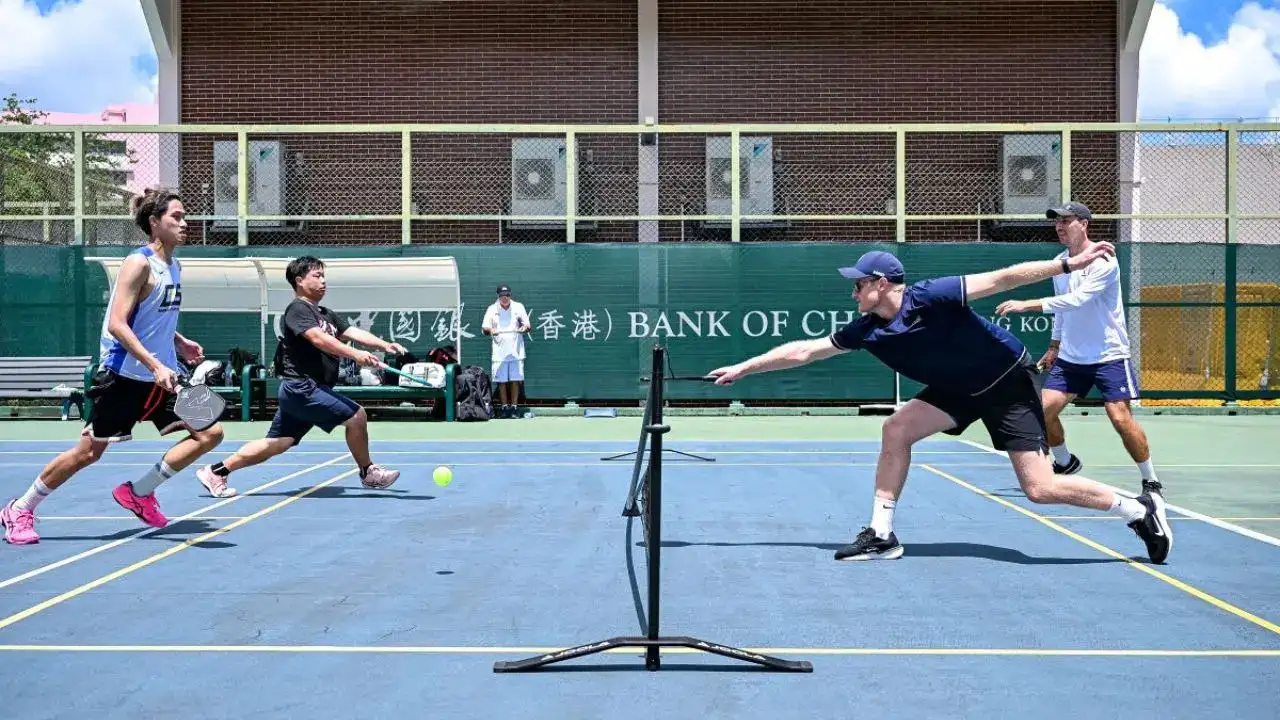
A sport that was unheard of only a couple of years ago has become a big hit among the youth of Hong Kong.
Pickleball has become a popular sport among the youth of Hong Kong as they look for easy ways to exercise. Since the Covid-19 pandemic hit the world, its popularity has soared as young people looked for ways to stay active. It is quite a remarkable transformation for a sport that the people of Hong Kong hadn’t even heard of a couple of years ago.
The sport’s easy accessibility and nominal requirement for skills to begin playing have made it popular among the youth in the East Asian country. This is especially significant given that more than 90 per cent of the city’s youngsters do not get at least 60 minutes of moderate or intense exercise every day. However, pickleball has emerged as a fun and easy way to burn the calories.
Kennedy Lai, the founder of the Newly Emerged Sports Association in Hong Kong, said he hopes that the easy-to-learn sport can get students moving.
Lai, a physical education teacher for about six years, tried out basketball as his students struggled to adapt to traditional sports. "After I teach dribbling, they do not know how to play the game. I need to use many lessons to let them know the sport,” Lai told the South China Morning Post. This made the kids lose interest in sports.
But when Lai introduced pickleball to his classes, he noticed a paradigm shift as the students started showing signs of enjoying the sport. While pickleball is easy to learn and play, its equipment is also cheap, and the sport carries a lower risk of injuries. It offers more benefits, like socialising.
Freak injuries from pickleball are unlikely. The holed plastic ball is lightweight and made of resilient plastic, so it loses speed quickly. The hitting paddles are larger than those used in table tennis. The court is the same size as a badminton court, but with slightly different markings - the 'kitchen' being a distinct characteristic of the court. A smaller court and lighter ball mean the game is less demanding, with minimal intense running.
As pickleball became a big hit among the youth, the country's stagnant badminton courts have been converted into pickleball facilities. Lai's next challenge is to include pickleball in physical education classes across Hong Kong. He also hopes to launch school and community leagues in the near future.
But challenges remain, as most schools in Hong Kong currently have traditional sports in their curriculum, making it tough to convince them to try a new game. Also, schools need their physical education teachers to understand the game better in order to train the students.
On a positive note, government- and private-sector-sponsored pickleball courts have popped up across the country ever since the sport gained popularity. Students are now trying pickleball through the Fly High Charity Sports Programme 2025, which aims to use sports to improve the lives of young people.
